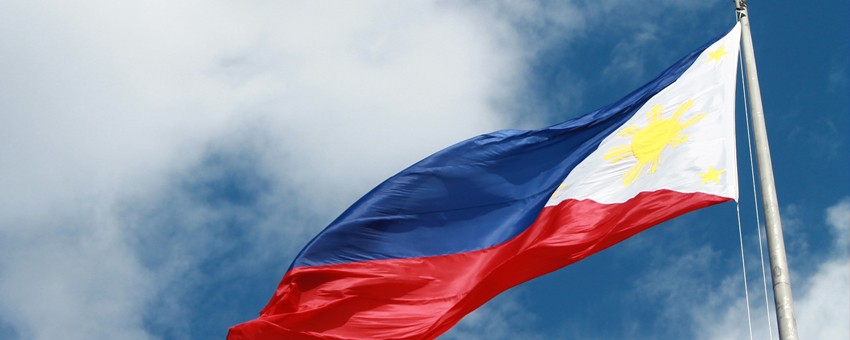
Yesterday, on 9 May, we celebrated Europe Day. The EU national anthem is ‘Ode to joy’. Europe is about joy. Europe is about values, culture, art, political ideas, sciences, equality, about giving friends around the world the opportunities to create better, more joyful lives for generations to come.
The word Europe originated in Greece, which was the birthplace of philosophy and democracy – ideas that we 2500 years later still benefit from, but sadly, still cannot take for granted. Our governance system is built on the concept of separation of powers, developed by Montesquieu in the 18th century. A concept which since have secured better governance, but which we also cannot take for granted, as it is often cast aside by populism and political ambitions.
Europe is the birthplace of capitalism. Adam Smith argued that systems should be built around self-interest – and collective interest. Ideas of equality were discussed by Karl Marx, leading to upheaval in Europe and also in Asia, casting away old feudal systems. Ideas that later developed from the social systems created under Bismarck, to the Beveridge plan, to the European welfare states.
Today Europe remains one of the most equal societies in the world. When friends in the Philippines discuss the pro-poor agenda I always encourage them to look at Europe. It is one of the places in the world where the agenda has been successfully implemented.
Europe is about music: Beethoven, Mozart, Chopin, Liszt, Beatles, Rolling Stones and Lucas Graham. Europe is about literature, our lives are so much richer with Homer, Dante, Chaucer, Cervantes, Shakespeare, Voltaire. And our children read the Grimm brothers, Hans Christian Andersen, Astrid Lindgren. Visual arts: Michelangelo, Monet, Van Gogh, Picasso. Science: Pythagoras, Copernicus, Galileo, Einstein, Bohr, Pasteur - I could go on and on.
George Orwell, who cautioned us about big brother (he had a point), Huxley and his ‘new speech’, and Victor Klemperer, who all wrote about the importance of words and expressions, and how statements can change perceptions. And why we should pay attention to what is being said, and not dismiss it as simply ‘words’. Vaclav Havel, who famously combined arts with a political career, was a great intellectual and political force.
Yes, we are value based, and yes, we think the world is a better place when the right values – be they environmental, political, economic – are respected. Do we impose our values outside the EU? Of course not. Do we engage in discussions on values on the basis of equality and respect for other views? Yes, we do. Does it make us happy to see countries prosper? Of course it does, and through our development cooperation we are supporting this transformation process.
On 1 March the EU-Philippines Partnership and Cooperation Agreement entered into force – a major leap in our relations. We now both benefit from an agreement that serves as the basis for our relations.
Our trade flourishes, Philippine exports to the EU grow faster than to any other major partner. The trade balance is heavily skewed in favor of the Philippines, which is a reflection also of the benefits the Philippines derive from the GSP+ scheme. The EU is now the second biggest export market of the Philippines, with a staggering growth rate of 35 percent year on year.
The 800,000 Filipino OFWs in Europe continue to work under systems that rightfully offer them a high degree of protection, and in case of breaches of labour laws, human or other rights, the legal system is there to protect them. The OFWs in Europe are rightly seen as an integrated part of the labour force.
Today there is much talk about nationalism across the world, in Europe we have been down that road, and have seen how building walls, how stressing differences, can set societies back and how it can lead to misunderstanding and confrontation.
For decades we had an iron wall dividing Europe, we had a part of Europe where human rights were trampled on. A wall that not only kept the outsiders out, but also kept the insiders in. We saw the costs of using walls to separate ideas and people. Europe is a much more joyful place without the wall.
The world, Europe and the Philippines too, is a much better place than it was even just a generation ago, the iron curtain is gone, the Philippines has moved out of the martial law period. We are safer, richer and healthier. The young are better educated, and have better job prospects. The reality is that the world has for most never been a better place to live in than it is today.
My job is to bring Europe to the Philippines together with my colleagues from the EU Member States Embassies, from the ECCP and the national European chambers of commerce.
Yes, it can be popular at times to point out differences between countries and of course there can be important differences between countries from time to time. It can be tempting to define ourselves as different, and as better. It is less popular to point out that within nation states most often there are differences that are much bigger than what we see between countries.
The profile of the EU in the Philippines has increased; today almost all Filipinos know not only about the EU, but also about our work and our relationship. There have been some misunderstandings, but that makes my work even more fascinating, trying to iron out the remaining differences.
We all live in a wonderful country with wonderful people. Recently I biked from El Nido to Puerto Princesa to experience the natural beauty of Palawan, and to be together with the hundred bikers who joined me. I will never forget the trip, there was no ‘them and us’, it was all ‘we’. Let it be the same when we celebrate the EU-Philippine relations and the Europe Day.
There is much to be joyful about – also in the relationship.
Source: https://www.philstar.com